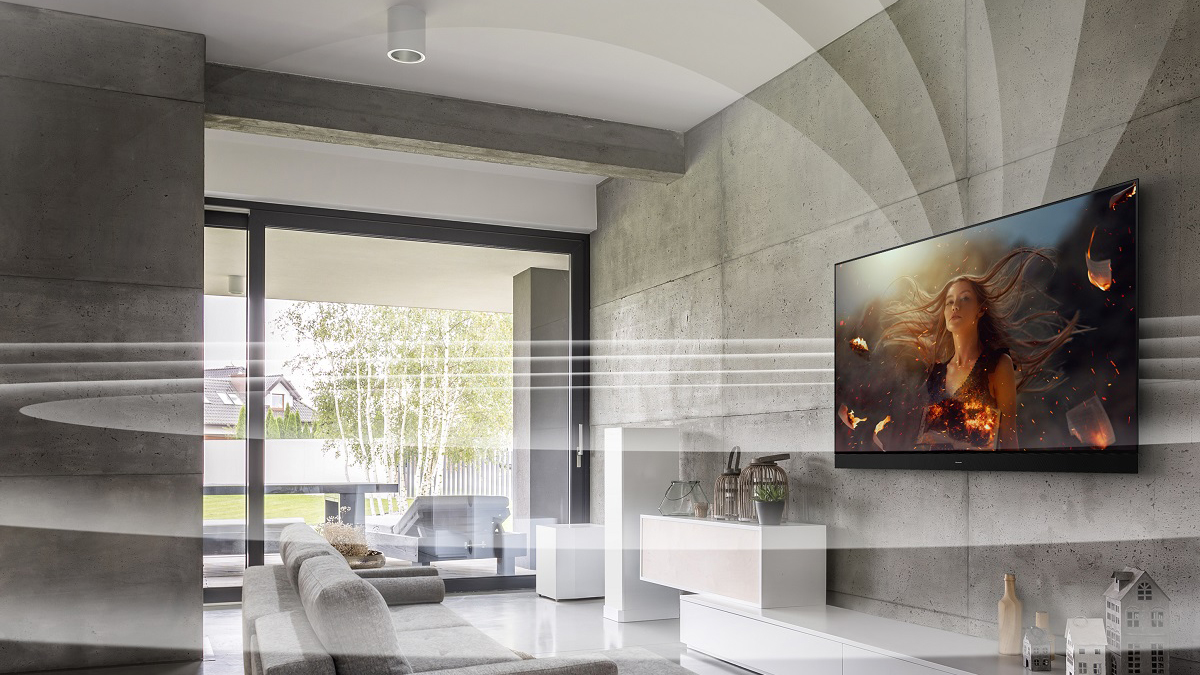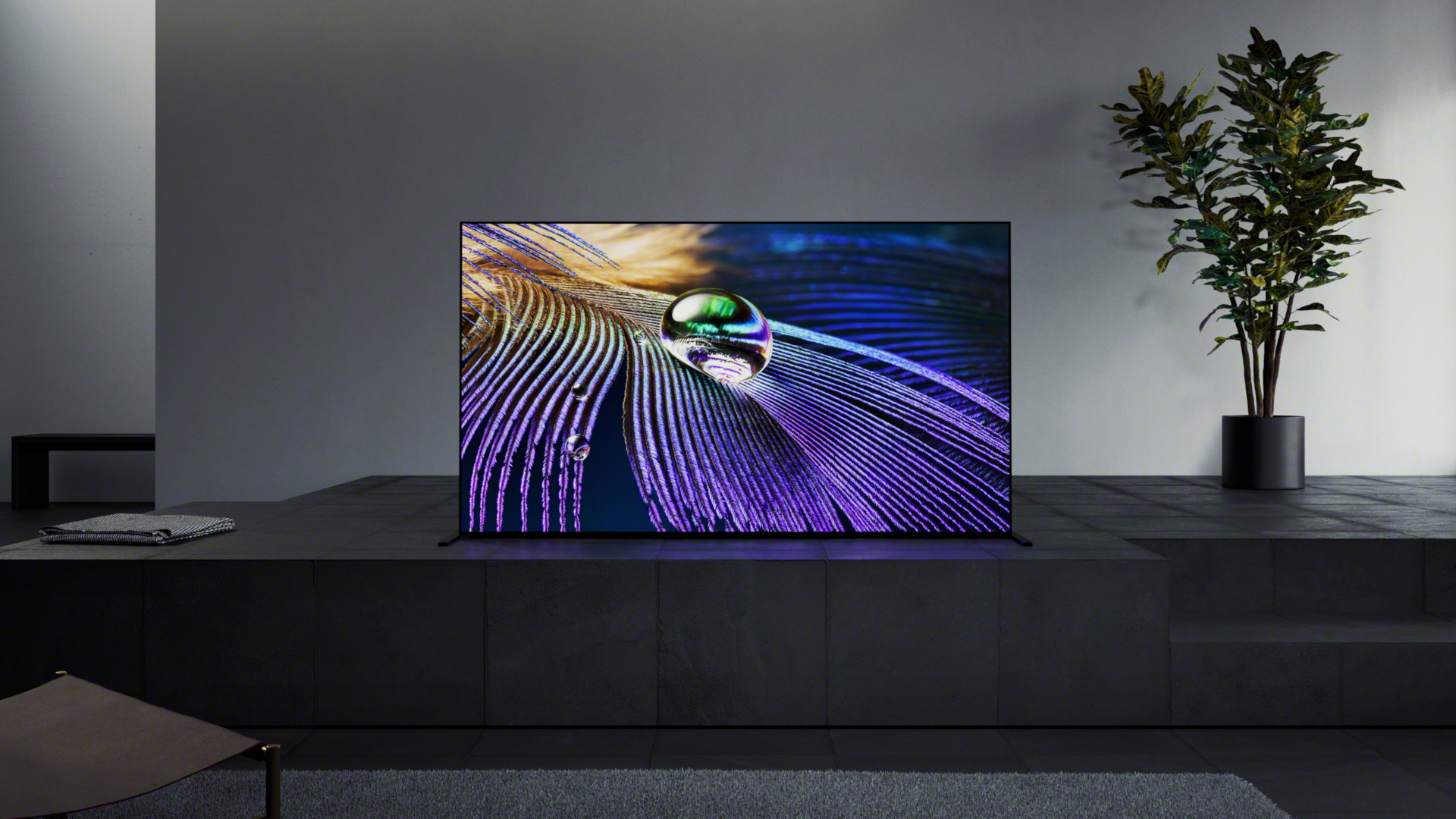If you’re after a 55-inch 4K TV that really pulls out all the stops, the Panasonic JZ2000 may have you sorted.
Panasonic has long had a reputation for exceptional OLED TVs – helped by its use of a custom Master HDR Professional Edition panel that elevates the brightness usually possible on an OLED screen.
This year’s iteration doesn’t change much in that sense – last year’s HZ2000 had effectively the same panel and brightness output – but the continued excellence of Panasonic’s flagship screens, alongside the tweaks and improvements that have come to the JZ2000’s connectivity and audio output, could make it a shoe-in for the best 55-inch OLED TV we’ve seen this year.
- Read our full Panasonic JZ2000 review
That’s high praise indeed, in a year which has seen the LG G1 – a Gallery Series screen that similarly ups the brightness compared to run-of-the-mill OLED displays – or the Sony A90J that marked the TV maker’s best screen since 2019’s Sony A9G.
But while all these screens share excellent picture quality and processing, with high-spec chipsets powering the deep black, infinite contrast and all-round dynamism of OLED panels – all of which, we should remember, come from the same supplier (LG Display) – the JZ2000 has an edge in just how much audio power it packs into a single screen’s built-in speakers.
Not to mention the side-firing speakers (new for 2021) that help expand the sound around your living room or home cinema, ensuring the quality of the sound is heard clearly anywhere nearby.
Sound the alarm

The 125W output of the JZ2000 is truly wall-shaking, and that’s even if you only up the volume to half of its full potential. It marks a welcome change from the often substandard built-in audio of so many high-end screens, which get by on the presumption of a separate sound system in your home, or questions even high-spend consumers’ dedication to premium audio alongside the excellent picture quality of these OLED screens.
The LG C1 and LG G1 OLEDs only pack in 40W total audio output each, with a muddy bass response that seems preschool compared to the advances made in Panasonic’s extensive sound systems.
In our LG C1 review, we said the screen’s only real issue was how “audio can be a bit all over the place – meaning you’ll hear booming bass and nearly sibilant highs with weaker dialogue when watching that big new Hollywood blockbuster. For us, it happened during Falcon and The Winter Soldier where the sound effects were fantastic but the actual actors’ voices were getting lost in the mix.”
It’s a small issue, and admittedly fixable by choosing an Enhanced Dialogue sound preset or turning on volume leveling – though at the expense of some bass output, meaning it’s something of a compromise.
The Sony A90J certainly impressed our reviewer on the audio side – though its Acoustic Surface Audio+ system, which literally shakes the screen’s panel to emit sound, can be a bit of a Marmite option, sounding expansive to some and a bit muddied to others.

It’s hard to imagine anyone listening to the JZ2000’s impactful sound and feeling disappointed, though.
We wrote in our review that “The JZ2000’s speakers are truly incredible for built-in audio, being capable of recreating both the delicate footstep on a stairway and roaring explosion of a car crash in equal measure. You’re getting precise audio detail as well as a strong bass response – and while some subwoofers and surround sound systems can outperform it, you simply won’t get better built-in audio on a smart TV right now.
“While any TV will have a ‘sweet spot’ for the picture and sound (usually dead on center) the wide viewing angles of the OLED panel and side-firing sound of the JZ2000’s speakers means that sitting in almost any spot in your living room should make for an impressive movie night. And it’s this combination of picture and sound capabilities that makes the JZ2000 an all-in-one home cinema in a way the LG C1... simply isn’t.”
Ticking all the boxes
There are more reasons to buy a TV than its audio performance, certainly. But at a time when OLED, even brightness-enhanced OLED, is becoming standardised across a few flagship ranges, and HDMI 2.1 specification is available on both mid-range and high-end sets, audio remains a hugely varying spec across screens of all sizes and price tags.
Panasonic’s TV department is smart enough to vary this audio output between its OLED screens, too, making do with 30W on the entry-level JZ980 and JZ1000 models, and gradually scaling up to the 125W of its JZ2000 flagship.
Unsurprisingly, you’ll be paying through the nose for this high-end Panasonic screen. It starts at £2,699 for a 55-inch size, going up to £3,499 for a 65-inch model. Both feature the same sound system, too, meaning you can get a lot of audio power even on its smaller sizing option.
If you’re after an OLED TV in the UK that sounds as good as it looks in 2021, and can do all that at a 55-inch size – rather than requiring the wall space for 65 inches or above – the JZ2000 should absolutely be on your radar.
- Check out the best 55-inch 4K TVs
from TechRadar - All the latest technology news https://ift.tt/3BXduUq







No comments:
Post a Comment